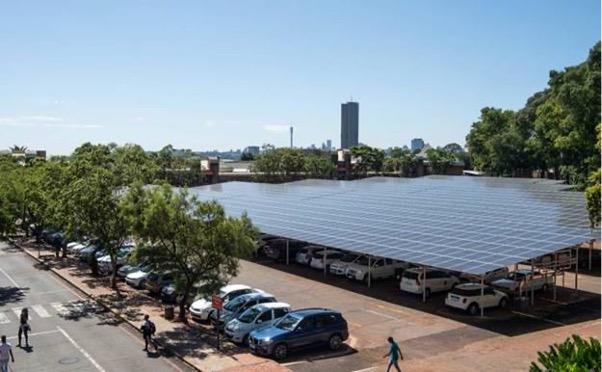- The University of Johannesburg (UJ) is set to become ‘grid positive’, thanks to 4 450 solar panels that have been installed on the roofs of several on-campus buildings and carports (covered parking bays) since 2020.
Through this project, the University is demonstrating its commitment to environmental sustainability by reducing the electricity demand on the national power grid.
“The photovoltaic system manages over 1700 kilowatts of solar photovoltaic power and could produce as much as 4 343 500 kilowatt hours of renewable energy annually. This is close to 8.88 percent of the 48 866 044 kilowatt-hours of energy consumed across the University’s four campuses, yearly” says Mr Mbambeleli Masala, the project manager of sustainability at UJ.
Masela pointed out that the University is seekingprojects that are innovative for both university operations and for research purposes. “Installing solar power energy not only provide learning opportunities for our students, save money by reducing the power bill, but that it also is a step towards achieving the country and the world’s climate goals as it also reduces the carbon emissions.”
The solar initiative was rolled out with the support of RCSOL Renewable Circle Solutions and Croniment Mining Power Solutions, as an addition to their sustainability services in energy efficiency, water conservation and recycling.
Author: Bryan Groenendaal















